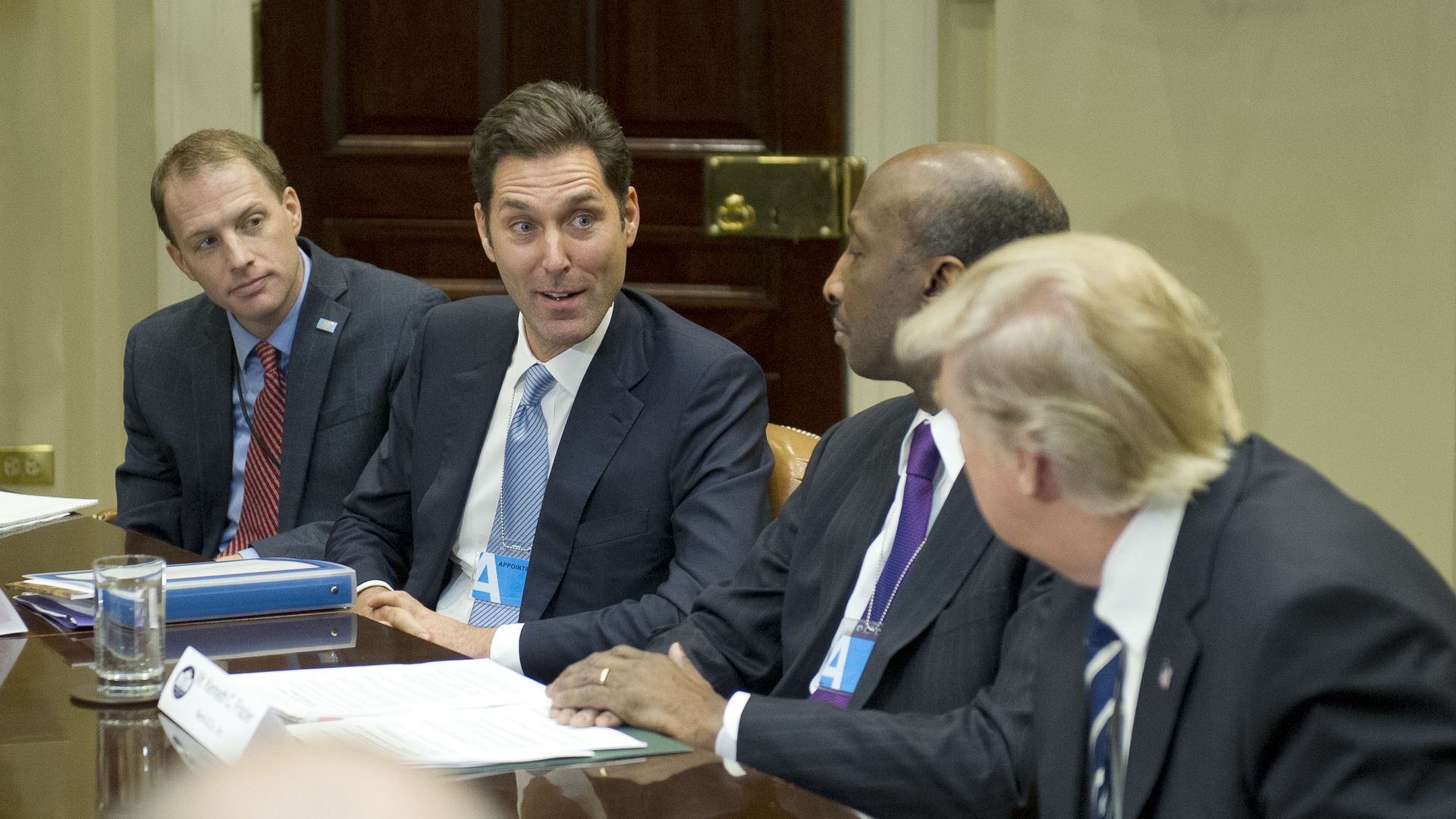Nov 18, 2019 - Health
PhRMA's cash load stayed steady in 2018
Add Axios as your preferred source to
see more of our stories on Google.

PhRMA CEO Stephen Ubl speaks to President Trump. Photo: Ron Sachs/Getty Images
Add Axios as your preferred source to
see more of our stories on Google.

PhRMA CEO Stephen Ubl speaks to President Trump. Photo: Ron Sachs/Getty Images